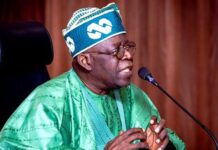By Shu’aibu Usman Leman
Professor Attahiru Jega’s well-intentioned initiative, aimed at bolstering the integrity of the Independent National Electoral Commission (INEC) through the deployment of university academics in elections has, regrettably, descended into a quagmire of alleged electoral malfeasance.
This deterioration has profoundly undermined the initial promise of enhanced probity and eroded public confidence in the electoral process.
The involvement of esteemed academics in these purported transgressions is particularly disconcerting, representing a fundamental breach of the ethical standards they were expected to uphold.
It raises serious questions about the safeguards in place to ensure impartiality and integrity within the electoral machinery.
Recent revelations have brought to light alarming allegations of collusion involving certain university professors and INEC officials in activities that bear an unsettling resemblance to political thuggery.
The once-unthinkable notion of ballot box snatching, perpetrated by members of the academic community, has seemingly become a stark reality.
The fallout from the Adamawa State gubernatorial election serves as a poignant illustration of this worrying trend. The Yola High Court’s warrant for the arrest of Barrister Hudu Yunusa Ari, the former Resident Electoral Commissioner (REC), issued to Inspector General of Police (IGP) Kayode Egbetokun, underscores the gravity of the situation. Allegations of contempt of court, arising from Ari’s conduct during the contentious 2023 election, have ignited a fierce public debate regarding the diminishing integrity of Nigeria’s electoral system. The court’s subsequent actions, including a Notice of Consequence of Disobedience of Court Order against Ari and the explicit threat of imprisonment, signal a determined commitment to judicial accountability. This order, coupled with the directive for the IGP to locate and present Ari in court, highlights the precarious state of the rule of law within the context of electoral governance in Nigeria.
Ari’s case reveals a troubling disregard for electoral probity. His public claim of possessing evidence to substantiate his declaration of Aisha ‘Binani’ Dahiru (APC) as the victor has intensified public scrutiny. His assertions of innocence and claims of being denied due process raise critical questions about INEC’s internal accountability and transparency mechanisms, and the potential for undue influence.
Similarly, past cases involving academics such as Professor Peter Ogban and Professor Ignatius Uduk have demonstrated the damaging consequences of electoral malpractice. Professor Ogban’s conviction for manipulating election results in the 2019 elections, resulting in imprisonment, exposed significant vulnerabilities in electoral legitimacy. Professor Uduk’s conviction further underscores the deeply concerning presence of academic involvement in electoral fraud.
Consequently, a palpable disillusionment has taken hold amongst the electorate, as these incidents forge a clear link between academia and political corruption.
This recurring pattern of misconduct amongst individuals expected to adhere to the highest ethical standards has cast a long shadow of doubt over the legitimacy of electoral outcomes, and the perception of neutrality within the system.
Nigeria faces a critical juncture where it must confront these profound challenges through the implementation of meaningful electoral reform. Comprehensive measures are indispensable for restoring integrity, accountability, and transparency within INEC and the broader electoral framework.
The current crises necessitate a rigorous introspective evaluation of established practices and structures. Beyond judicial interventions, the government must actively work to rebuild faith in democratic processes by ensuring that all electoral officials, irrespective of their academic standing, are held to the same legal and ethical standards.
Enhanced training programmes, clearly defined electoral procedure guidelines, and transparent dispute management mechanisms are fundamental pillars upon which any meaningful reform must be built. The need for independent oversight, and robust internal audit processes are also paramount.
Furthermore, the role of civil society organisations and the media in holding electoral officials to account should be strengthened. Public awareness campaigns regarding electoral rights and responsibilities are crucial in fostering a culture of informed participation.
As our electoral system grapples with fragmentation and challenges, it is imperative that we not only confront electoral malpractice head-on but also establish robust mechanisms for accountability that serve as a deterrent for future offences. With the 2027 election year on the horizon, the urgency of this endeavour cannot be overstated. We must ensure that this time around, we get it right—no compromises, no shortcuts. Upholding the rule of law and ensuring that those who undermine the democratic process are held accountable is essential for fostering a political environment where integrity thrives. This commitment to accountability should be coupled with widespread civic education and the active engagement of all stakeholders—government institutions, civil society organisations, and the electorate. Only through a collective commitment to transparency and ethical governance can we reaffirm the core principles of democracy and restore the trust that has been eroded over time.
In conclusion, we must broaden our focus to create an electoral landscape that genuinely reflects the people’s will, fosters inclusivity, and champions the fundamental rights of every citizen.
The credibility of Nigeria’s democratic processes hinges on our ability to enact effective reforms and nurture a vibrant civic space that empowers citizens to engage meaningfully in their governance. This is a pivotal moment for Nigeria, and it demands decisive action. Together, we must build a political system that every Nigerian can believe in—one that embodies hope, progress, and true representation.
The challenges we face are significant, but with unwavering resolve and a commitment to getting it right in 2027, we have the potential to transform our democracy into one that is robust, fair, and reflective of the aspirations of our people.
The time for action is now, and we have no choice but to seize this opportunity to lay a solid foundation for a brighter, more equitable future.
Leman is a former National Secretary of the Nigeria Union of Journalists (NUJ).









